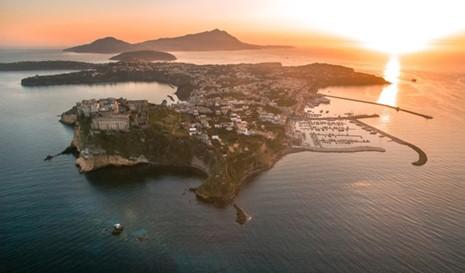
Island facts
Procida, a small island in the Gulf of Naples, faces significant challenges related to its energy system. Historically dependent on imported electricity, the island experiences high energy costs, grid instability, and limited availability of renewable energy infrastructure. Given its unique landscape and historical constraints, large-scale renewable energy installations remain challenging to implement. However, the island is strongly committed to adopting a sustainable, low-carbon energy model.
Through the 30 for 2030 initiative, Procida aims to address these challenges by implementing three key projects. The first is the CETA development, which focuses on creating a Community Energy Transition Agreement (CETA) to engage local stakeholders in energy efficiency and renewable energy solutions. The second project investigates onshore wind energy, mainly through small-scale domestic wind turbines, to complement rooftop solar PV and increase local energy resilience. Lastly, the building energy efficiency retrofitting initiative targets public buildings to improve insulation, upgrade HVAC systems, and integrate renewable energy solutions to reduce overall consumption. These projects collectively contribute to Procida’s vision of a greener, more self-sufficient island while fostering community participation and overcoming the island’s regulatory and technical barriers.
